Emmanuel Lacaba was a poet who searched for meaning and relevance in his art and life, and discovered these in the midst of the Filipino masses.
Emmanuel Lacaba was a poet who searched for meaning and relevance in his art and life and discovered these in the midst of the Filipino masses.
He won many awards as a poet, fictionist, essayist, and playwright; he was a magazine illustrator, a stage actor, and a production hand. He taught at the University of the Philippines, wrote songs, practiced martial, and even the occult arts. He was an honor student from grade school to high school (studying in the United States for one year as an exchange scholar), and he went to college on a full scholarship.
“Flower child” Eman Lacaba started to show political awareness during the First Quarter Storm of 1970, when he began taking part in political actions. He named his two daughters, born during that period, Miriam Manavi Mithi Mezcaline Mendiola, and Emanwelga Fe.
Lacaba was teaching a course on Rizal’s life and works when he was arrested and detained due to his participation in a labor strike. He lost his job at the UP as a result.
In 1974 he decided to join the New People’s Army (NPA) in South Cotabato. He took the name Popoy Dakuykoy, an allusion to a comic book character whose name he had once used for a character in an epic poem he had written in the 1960s.
His passion for writing was well known. When he ran out of paper to use, he wrote on the back of cigarette foil wrappers. In one of his poems, he described himself as the “shy young poet forever writing last poem after last poem,” the “brown Rimbaud” who became a people’s warrior.
Lacaba had been with the NPA two years when, in March 1976, an informer led a troop of soldiers to the peasant hut where he and his fellow guerrillas had spent the night. With no warning shots or calls for surrender, the soldiers opened fire. All the guerrillas were killed immediately, except Lacaba and a pregnant teenager who were both wounded. They were being taken to Tagum, Davao del Norte, when the sergeant who headed the soldiers gave the instruction “not to bring anyone back alive.”
The pregnant woman was first to be shot dead, then Lacaba, who is said to have dared the informer, “Go ahead, finish me off.” The informer had then put a .45-caliber pistol into his mouth and fired. Lacaba’s mother claimed her son’s body later.
Eman Lacaba is perhaps the first nationally-known creative writer who joined the armed struggle against the Marcos dictatorship. Poems and articles were written about him after his death. A collection of his poems, Salvaged Poems, was published posthumously in 1986. Another collection, Salvaged Prose, of his short stories, plays and essays, came out in 1992.

Besides serving as city councilor from 1971 until his death, he was active in many civic and community organizations, and received numerous awards from civic, charitable, government, professional, education and other organizations.
When the country fell under martial law and military abuses spread in his province of Zamboanga del Norte, Amatong took up the cause for justice and human rights, particularly the right to free speech and a free press. He espoused the cause of the common people. Mindanao Observer defied martial law restrictions on newspapers and published articles critical of the regime, especially the military. It exposed their involvement in protecting gambling operations, in extortion activities, and the fabrication of military reports by an intelligence officer for blackmail purposes. It reported on cases of summary execution of civilians and military bombing of communities. It also published appeals on behalf of political detainees.
Mindanao Observer gained the respect of many Filipinos, but it did not endear Amatong to the regime. He went further by taking up human rights cases and becoming an outspoken member of the Western Mindanao Alliance of Sectoral Organizations-Nationalist Alliance for Justice, Freedom and Democracy (NAJFD).
On September 20, 1984, eve of the anniversary of the imposition of martial law, Amatong again defied the authorities and spoke at a rally denouncing the military abuses.
That week, Amatong and his friend Zorro Aguilar, also a human rights lawyer, had been preparing to join a mission to document reports of military abuses in the province and to exhume the bodies of two individuals who had been summarily executed three months earlier in Tampilisan town.
The night before they planned to depart with the fact-finding mission, Amatong and Aguilar were walking along a city street when two men came up and shot them at close range. Aguilar died on the spot, while Amatong was brought to a nearby hospital by someone who recognized him. Asked three times if he recognized the attackers, each time Amatong replied:”…Army…” He died in the hospital eight hours later.
Two soldiers were identified as the killers by a key witness, the driver of the getaway vehicle; the latter was himself killed by unidentified men a year later.
Family and friends demanded justice from the government but no hearings were ever conducted on the two killings. Few doubted that the order to kill came from martial law authorities.
Some 10,000 people came to attend the funerals held for the two lawyers, a sight never before seen in Dipolog.
From the start, martial law kept Alex Orcullo busy, denouncing military abuses and defending people’s rights.
Upon its declaration in September 1972, he led a group of young people in marching around the small town of Padada singing “Pilipinas Kong Mahal.” Days afterward, they were arrested and detained at the constabulary barracks.
He had been an outstanding student, and after graduating from college he went on to pursue a master’s degree in economics. At age 24 he was asked to become the president of St. Michael’s College in his hometown, during which time he focused on the development of more young leaders. He was a professional manager with a particular expertise in running housing projects. He also opened and ran a private school.
Orcullo initiated the publication of Mindaweek, edited Mindanao Currents and wrote for the San Pedro Express. His daily radio commentaries reached a wide audience. He was fearless in his stance against repression and tyranny, calling on the people to realize their pathetic situation and to struggle to be free.
His social and political involvement included chairing the LIHUK Mindanao and the Hukom Demokrasya ng Liga ng Ekonomistang Aktibo sa Dabaw. He served as secretary general of the Coalition for Restoration of Democracy in Mindanao and political officer of the Makabayang Alyansa.
He was even barangay captain in his village, Mandug, situated at the outskirts of Davao City. It was a highly militarized area, with armed men in masks roaming during the night. The military and their “assets,” the residents reported, were soliciting information about Orcullo.
But Mandug was “a well-organized community…able to project collective pressures on the local government and military.” In September 1984, Orcullo was arrested and brought to Camp Panacan. A hundred male civilians from Mandug gathered together and proceeded to the military camp and refused to leave until their barangay captain was released.
On the day of his 38th birthday, October 19, 1984, while Orcullo was driving home with his wife and youngest son (2 ½ years old), they were accosted by armalite-wielding men in uniform in barangay Tigatto. He was ordered to leave the car and subjected to a body search. His arms raised, he was ordered to walk. He was then shot from behind, sustaining 13 gunshot wounds. One “Kapitan Inggo”, known to head a paramilitary group calling itself Philippine Liberation Organization, later claimed responsibility for the murder.
The last editorial Alex Orcullo wrote before he was killed was entitled “Why Rage?” In it, he urged his countrymen to rage against oppression and tyranny and to fight injustice without compromise. It was to be his parting message.
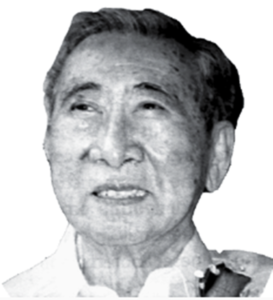
It is now well-known that Marcos had been scheming for years how to carry out the plan that would ensure his continuing stranglehold on power. In 1970, well before actually imposing one-man rule, he “decided to test the waters with actions against [us], believing that we are the weakest link in the Philippine press,” said Rizal Yuyitung afterwards.[1]
Rizal was the editor-in-chief of the Chinese Commercial News and Quintin was its publisher. Before World War II, it was their father, Yu Yi Tung, who had been the newspaper’s publisher; he was executed by the Japanese in Fort Santiago for refusing to allow it to be used for their propaganda.
Named after the national hero, Rizal was born, raised and educated in the Philippines. An agriculture graduate, he and Quintin revived CNN after the death of their father. Under their leadership, it went on to resume its place as a respected voice of the Chinese-Filipino community.
In keeping with the highest standards of professional journalism, CNN prized its independence as embodied by Yu Yi Tung. But it was tagged “pro-communist” because it had been printing reports translated from western news agencies about developments in what was then tagged as “Red China.”
The Marcos government therefore kidnapped and flew them to Taiwan (which they didn’t recognize as their country, considering themselves Filipino). There they were hastily tried and sentenced to prison: Rizal for three years and Quintin for two.
In persecuting the two brothers, Marcos was toeing an ideological line that was also anti-Chinese – thinking that nobody would care to speak up in their defense. (CNN and the brothers were also strongly advocating for a less difficult process of acquiring Filipino citizenship for ethnic Chinese like them.) But after the Yuyitungs were deported, 170 Filipino journalists, students and academics signed a manifesto in protest. Prominent lawyers and journalists rushed to their side.
By the time Rizal Yuyitung was released from prison in Taiwan, Marcos was already tyrannizing the entire Philippines with his dictatorial rule. Rizal’s wife Veronica had also suffered a period of detention. The couple then decided to live with their children in Canada.
After Marcos’ downfall in 1986, Rizal and Quintin Yuyitung returned to the Philippines and resumed the publication of Chinese Commercial News. Even after their deaths, it continues to exist today.
Manuel Ontong was, like many artists, a quiet man whose inner feelings ran deep. In fact, in 1970 the Art Association of the Philippines cited him as the “Best Expression of the Filipino Soul.”
That was the year he joined the Samahang Demokratiko ng Kabataan, of which his younger brother was already a member. He also joined Sining Bayan, an organization of socially committed artists that included stage, movie and television personalities. Ontong participated actively in the First Quarter Storm of 1970.
Before that, he had worked for two years as an artist-illustrator for the National Museum, having graduated with a fine arts degree from the University of Santo Tomas in 1967. His work entailed traveling to archaeological excavation sites as part of the team from the museum, and executing sketches for the documentation. His illustrations were later incorporated in the museum’s reports and publications.
Ontong was disappointed when his nomination for a study grant to Australia in 1969 did not push through; he thought it was because no one powerful was backing him up. The “palakasan” system, his sister observed, was what started his politicalization. At the time, she explained, the National Museum’s director had become critical of the Marcos administration, so that when the latter resigned her position Ontong followed suit.
When Marcos suspended the writ of habeas corpus in 1971, Ontong was arrested and detained with some other activists for one week. Because his mother had been so traumatized by this incident, he got a job as artist-illustrator at the Philippine Council for Agricultural Research and Resource Development in Los Baños, Laguna. He was already working there when martial law was declared. But quietly, Manny Ontong continued to create posters and other art works that expressed the people’s anger under the dictatorship.
On November 26, 1975 his family received an anonymous call informing them that Ontong had been picked up by men in civilian clothes and taken away in an army jeep in front of the Philippine General Hospital along Taft Avenue in Manila. His mother went from one detention center to another looking for him, reaching as far as Camp Vicente Lim in Laguna and in Pampanga. She never found him. Manuel Ontong was 29 years old when he disappeared.

At the end of the war, Quintin Yuyitung decided to continue the work for which his father had given up his life. He reopened the Chinese Commercial News in 1945, and built it up to become the most widely circulated Chinese-language newspaper in the Philippines, respected for its independent positions and coverage of the news.
Quintin and his younger brother Rizal, who was editor of the newspaper, were advocates of closer integration of the local Chinese community into mainstream Philippine society. At the time (the People’s Republic of China had been established in 1949), this was considered a ‘subversive” idea by the Philippine authorities and the conservative leadership of Chinese-Filipino businesses in the country. In 1962 the brothers were arrested, detained and threatened with deportation but eventually released.
Still they were fearless in reporting the news as it was happening, covering the accounts of fraud that marked President Marcos’ reelection in 1969, and the series of protest actions of the First Quarter Storm. Together with other leaders of the Philippine media, they defended press freedom and warned against the looming possibility of martial law.
Late one night in May 1970, Quintin and Rizal Yuyitung were picked up by immigration personnel and sent off to Taiwan on a military plane. “Now we have an undeclared state of martial law,” Senator Jovito R. Salonga said of their abduction.
Although the brothers had renounced their Chinese citizenship and had never set foot in Taiwan before then, the Kuomintang regime in Taipeh subjected them to a military trial. Quintin was sentenced to imprisonment of two years, and Rizal, three years. In Manila, their friends took over the newspaper’s operation.
Shortly before the declaration of martial law in the Philippines, Quintin Yuyitung had been released and allowed to leave Taiwan after serving his sentence. He proceeded directly to Jerusalem where an annual convention of the International Press Institute was being held. There he denounced the Marcos dictatorship and its suppression of press freedom.
He spent his exile in San Francisco, California, participating in many activities alongside other anti-dictatorship activists based in the United States. His brother went to Canada.
After the Marcos regime fell in 1986, the Yuyitung brothers returned to the Philippines and revived the Chinese Commercial News. In 1990, Quintin Yuyitung died in San Francisco after a stroke. Rizal Yuyitung died in Canada in 2007.
In his life, Quintin was also noted for his dedication to the welfare of Manila’s urban poor who had been resettled in Sapang Palay, San Jose del Monte, Bulacan. For many years, he spent weekends helping them, contributing substantial personal funds and soliciting donations from friends and the public through his newspaper.
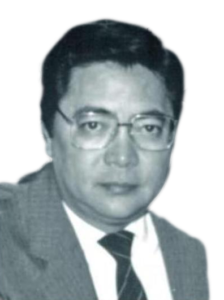
His sense of what was good or bad for the nation was probably sharpened by the years he spent as a broadcast journalist. In 1966, he broke into Philippine television when he was chosen to be the sole anchor for the news program “The Big News.” Nightly he delivered information that was credible, committed to the truth, and professionally presented, earning a series of awards for the program. He also hosted a talk show, interviewing personalities about the hot issues of the day.
Velez began his career in mass media as a disk jockey in radio station DZHP, while he was still studying for a political science degree at the University of the Philippines. It was a “graveyard shift,” from 12 midnight to 5 am, but he needed to support himself and his young family. After graduation, he went on to study law, which he finished in 1970.
When martial law was declared in September 1972, Velez was ordered arrested along with several other delegates to the Constitutional Convention. He and journalist Napoleon Rama, also a detained Con-Con delegate, were allowed to vote on the “ersatz Marcos Constitution,” as Velez called it. A “yes” vote would have meant release from detention and membership in the martial law legislative assembly. With “every fiber in (his) body,” he voted “no.”
By early 1973, Velez was released from detention but instead placed under house arrest for another two years. After this, no one wanted to employ him for fear of the Marcos regime. He himself vowed never to return to broadcasting until the dictator was ousted from power.
In the meantime, he reviewed for the bar, which he passed, and pursued a master’s degree in economics, after which a friend asked him to work in one of his business firms. After that he became vice-president of Associated Bank.
But Velez continued to be active in the opposition to the regime. He helped found and chaired SELDA, an organization of former political detainees. He refused to accept the Marcos Constitution and assailed the corruption of the dictatorship. He called for a boycott of the 1984 elections and joined the opposition party, Laban, in the 1986 snap presidential elections.
In February 1986, Velez was among the first to go on air, announcing the flight of Marcos and his family from the country. The “country’s number one TV newscaster” was at last free to return to broadcast journalism. His first post-Marcos stint in mass media was on Channel 7 with Tina Monzon Palma. President Corazon Aquino also appointed him director of the Development Bank of the Philippines.
It was Velez and American lawyer Robert Swift who together filed the first class suit against Marcos before a court in Hawaii, USA, He was lead plaintiff in the case of thousands of victims whose human rights were violated under the dictatorial regime.
In 1989, Velez became the first awardee for service by a journalist given by the Ninoy Aquino Fellowships for Professional Development. In presenting this award, the then US Ambassador to the Philippines Nicholas Platt read the following: “It is most appropriate that this honor should go to a man who was imprisoned with Ninoy when freedom of the press was under the harshest attack in the Philippines.”
He died of lung cancer at a hospital in New York City in 1991, at the age of 50.
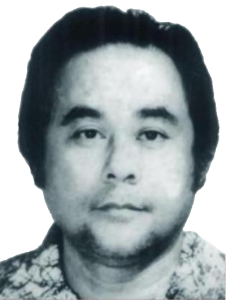
In such places, and especially during the dictatorship, violence ruled. Governance was not subject to the rule of law, but only to the wishes of the local tyrant who spent the people’s money as he wished, and controlled illegal activities such as gambling and smuggling. The government’s counter-insurgency program was frequently an excuse for the killing of political opponents.
Demosthenes Dingcong was a journalist who wrote about government and military corruption and abuses under the harrowing conditions of martial law. He was killed for it.
Dingcong was the provincial correspondent of the newspaper Bulletin Today. Like most community journalists, he wrote for several publications and hosted a radio program. Although he was a well-known personality, it was not easy for him to live a comfortable life; he and his family lived in a house that they rented for P70 a month.
Writing under martial law conditions was difficult enough, but Dingcong faced greater difficulties than most. Lanao was a stronghold of Marcos henchman, the warlord Ali Dimaporo, then Lanao governor. Yet Dingcong continued to do his job. “I have never been cowed [into exchanging] my freedom to write the truth,” he wrote just before he was killed.
He exposed anomalies committed by local politicians, military abuses, the plight of political prisoners, the existence of a military protection racket for big- time jai-alai bookies in Iligan, and corruption in public office, among others. City officials often threatened him, one of whom even pointed a gun at him once. In another incident, two men tried to shoot him in a market place.
In October 1980, Bulletin Today published his exposé on fund irregularities at the government-run Mindanao State University, where Dimaporo sat as chairman of the board. The article revealed the disappearance of a P1.35-million fund intended for students’ food and allowances.
Dingcong had to go into hiding after this exposé was published. Writing to the National Press Club, he said that certain persons had been roaming the city looking for him, ready to kill him on sight. After a few days, however, he went back home. But on December 5, a gunman crept from behind him inside his house in Iligan City and shot him in the head.
Journalists all over the country, led by the National Press Club and other professional organizations, issued statements expressing anger over his killing.
And although the local officials stayed away from Dingcong’s wake and funeral, thousands of ordinary people came to mourn his death.
In a tribute to the martyred journalist, the bishop of Iligan, Fernando R. Capalla, pointed out: “…[A]t last a poor person like Demy – one of your own in your poverty – was able to destroy the myth that the truth about Lanao and Iligan cannot be told and publicized.”
Because of the strong negative reaction, President Marcos had to promise an immediate investigation and justice for Dingcong. Four suspects, all constabulary soldiers, including a personal bodyguard of Dimaporo, were arrested. One actually admitted to being the gunman.
However, three were immediately cleared of charges. The confessed killer was released not long after and got hired as a bodyguard of another provincial official.
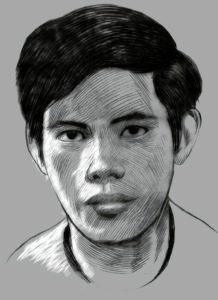
Thus, he shifted from engineering (for which he had a government scholarship) to economics, thinking that the course would be more relevant to the nation’s needs. He did graduate in 1971, with a bachelor’s degree in economics, in effect banishing hopes of any substantial contribution to the family’s finances.
Early on, Tagamolila – whose older brother Crispin, an Army lieutenant, defected to the New People’s Army – had already made a name for himself as editor of the Philippine Collegian where week after week he wrote about politics, foreign affairs, and social questions. Then, elected national president of the College Editors Guild of the Philippines, he exercised leadership over other student writers in carrying forward the kind of committed journalism that he was already practising.
Membership in radical organizations at the time molded Tagamolila’s thinking; he joined Kabataang Makabayan in 1966, and then the Samahang Demokratiko ng Kabataan. But he would never forget that he came from a poor family; his father didn’t have stable jobs, and scholarships enabled the Tagamolila siblings to get higher education.
“Never forget where you came from,” he would tell his wife Vicky. College sweethearts, they married in May 1972. After that he worked for a time on the staff of Romeo Capulong, Nueva Ecija delegate to the 1971 Constitutional Convention.
When martial law was declared in September 1972, Tagamolila did not hesitate to take his convictions to a higher level. He left for Panay in November. “He wanted to go back to his roots,” his wife said. “He was going to give back everything that he had learned… it was his obsession.”
Over a year later, Tagamolila was killed in a remote village situated on the common border between Aklan and Capiz provinces. Others who died in the same incident, when government troops attacked a small hut where they were staying, included Antonio Hilario and Rolando Luarca who had both been students in Manila.
A widowed mother at 23, Vicky Tagamolila chose to return to the area where Tony died, “to pursue our ideals.”
The people were so poor, she found, they only ate kamote and palawan (tubers and roots); no rice could be grown because the land was so full of rocks and stones. They sewed their own clothes from handwoven abaca fibers (biray). “When we were there, we set up a literacy program… the regular schoolteachers came only once every two weeks.”
During the late 1940s, the Hukbalahap movement had already been established there, as the location was advantageous for guerrilla warfare. Tagamolila’s group was sent there to begin again, and in the years afterward, before the situation got better, the place was a kind of “black hole,” where many lost their lives.

At a time when the dominant, elitist view of Philippine-American relations was one of benevolence and mutual benefit, Constantino pointed out that on the contrary, our subservience to the interests of the United States had resulted in stunted growth.
Colonial miseducation was responsible for the lack of critical thinking, he said, and urged a re-examination and redefinition of the Filipino identity that would affirm our independence, uniqueness and democratic values.
Furthermore, he said, the country’s underdevelopment can be traced to our colonial history: “This condition was not abolished with independence; it was merely transformed. We see the economic structure as the basis for the iniquitous political system in which economic privilege becomes the pillar of political power – a power that enhances colonial control and further entrenches the hold of the local elite over the people.”
During the 1950s, Constantino had already been branded a “security risk” by state intelligence agencies. His continuing prolific output of scholarly books and articles, however, found fertile ground in the youth and student movement here in the 1960s, amid worldwide questioning of American domination. These ideas were taken up in activist study courses and discussion groups – where the rebellious students said they were learning more than when they were dutifully taking notes inside the classroom.
In 1972, Constantino published The Marcos Watch, a collection of critical newspaper columns. When martial law was declared, he was placed under house arrest for seven months, and not allowed to travel abroad for several years. Still, he continued to research and write, in collaboration with his wife Letizia. In 1976 the couple established the Foundation for Nationalist Studies, Inc. (now the Constantino Foundation) to initiate, sponsor or finance programs and projects for the advancement of Philippine nationalism.
Among Renato Constantino’s well-known books are A Past Revisited and The Continuing Past (a two-volume history of the Philippines), The Making of a Filipino (a biography of Claro M. Recto), Neocolonial Identity and Counter-Consciousness, and The Nationalist Alternative. His most widely read essay, The Miseducation of the Filipino, had to wait five years before it saw print.
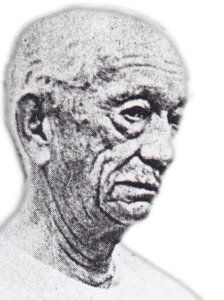
He may not have looked it, but he was one of the most influential personalities in the country before martial law was declared by President Marcos, being the owner and publisher of the Philippines’ most widely-circulated and respected publications at the time. These included the Manila Times, Daily Mirror, Taliba, and the Weekly Women’s Magazine. He also owned a radio station and a television station.
Although he was born into wealth and social prominence, Roces disdained the privileges and comforts of power. He had a soft spot for the underprivileged, and used his media organization to organize successful efforts to mobilize citizen assistance for those in need. During the killer floods that devastated Central Luzon in June and August 1972, he had food supplies airdropped to the survivors. When a big earthquake totally destroyed the Ruby Tower building in Manila, Roces was among the first to arrive at the scene to offer help. Earlier, during the 1965 eruption of Taal Volcano, he spearheaded a relief drive for the stricken victims.
When Marcos declared martial law in 1972, Roces was among the first he ordered arrested and detained. He would be jailed two more times after that, but he refused to give up. Despite his advanced age and failing health, he was in the forefront of many protest rallies, facing water cannons, truncheons and tear gas bombs.
During the snap presidential elections in 1986, the widow of assassinated Senator Benigno Aquino Jr. was reluctant to run against the dictator. Roces took it upon himself to convince Cory Aquino to run for president, by pledging to collect one million signatures for her candidacy.
After a civilian-military revolt in 1986 finally deposed Marcos and installed a new democratic government, Roces went back to publishing, but the old Manila Times was gone and he himself was not in good health any more. What’s more, the new government had shortcomings that to him were glaringly obvious.
When President Corazon Aquino conferred on him the medal of the Philippine Legion of Honor in 1988, Chino Roces decided it would be better to be frank with her and offer his sincere appraisal of what needed to be corrected in government. It was an act of good citizenship.
Roces died of cancer in September of that year. He was 75.
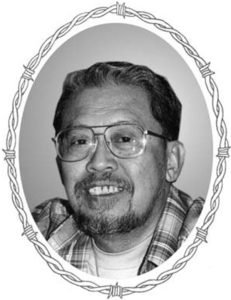
Prominent media personalities were jailed right at the start. Longer detention periods were suffered by many working journalists. Eventually, some media outlets were allowed to operate, but only news and opinions favorable to the dictatorship were allowed to appear.
Word of mouth filled in the very big blanks in the information system. Guerrilla groups put out their own underground newspapers. “Xerox journalism” consisted of photocopied articles from foreign media. Mimeographed sheets were circulated by church workers.
Before martial law, Jose (Joe) Burgos Jr. had already received praise for his investigative reports on political violence in Ilocos Norte, his home province and that of President Marcos. For this he was named one of the country’s Ten Outstanding Young Men in 1970.
In 1973, with martial law in full swing, Burgos accepted a Jefferson fellowship to study at the University of Hawaii’s East-West Center. He then worked for a while in two government agencies.
In May 1977, however, he began publishing the modestly-sized We Forum.It was a success, as the public soon discovered that it was reporting news and commentaries that could not be found in the Marcos-controlled press. Burgos also launched three other publications (Midday, Malaya and Masa).
Marcos tolerated these publications for a time, because their existence allowed him to claim that there was press freedom in the country. But after We Forum published a series of investigative reports about the dictator’s fake war medals, in December 1982 the police raided its offices and arrested Burgos and the newspaper’s columnists and staff.
Undeterred, Burgos put out Ang Pahayagang Malaya instead. By then, opposition to the dictatorship had become more openly defiant. Like We Forum before it, the newspaper ably mirrored the mood of the times and gained a broad, supportive readership. It was well-positioned to reflect and amplify the huge protest movement that reached new heights after the assassination of Sen. Benigno Aquino Jr.
Joe Burgos was named International Journalist of the Year by Inter Press Service in 1986, and by the International Press Institute as one of the 50 “World Press Freedom Heroes” of the 20th century.

 One of the methodical steps taken by President Marcos when he declared martial law was to immediately seize control of the mass media. Troops were sent to padlock the different newspaper offices and radio and television stations. Many journalists were detained by the military; the rest lost their jobs. Sometime later, the regime began allowing the mass media to operate again, but under strict surveillance and, eventually, self-censorship.
One of the methodical steps taken by President Marcos when he declared martial law was to immediately seize control of the mass media. Troops were sent to padlock the different newspaper offices and radio and television stations. Many journalists were detained by the military; the rest lost their jobs. Sometime later, the regime began allowing the mass media to operate again, but under strict surveillance and, eventually, self-censorship.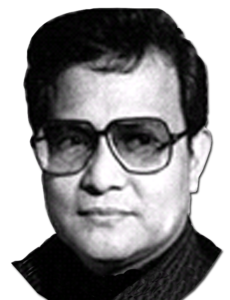 Catalino (or the more popular “Lino”) Brocka, is one of the greatest film and stage directors the country has produced.
Catalino (or the more popular “Lino”) Brocka, is one of the greatest film and stage directors the country has produced.